How to Make a Free Motion Embroidery Stitch Pillow
I recently discovered free motion embroidery and I love it! I combined two of my most favorite passions, art, and sewing, and created this painted and embroidered DIY pillow.
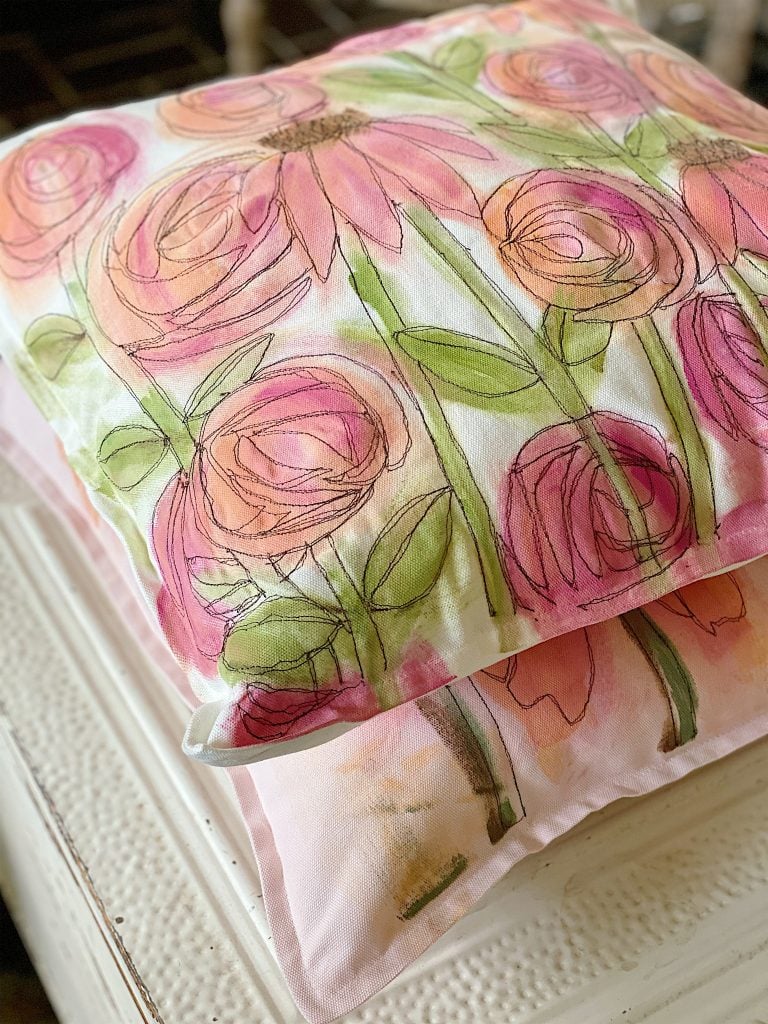
I think this is my new favorite DIY. It’s true. I discovered free motion embroidery and I love it. I bet when you first looked at this you probably didn’t even know it was stitched. Haha. Fooled ya! It’s a DIY pillow.
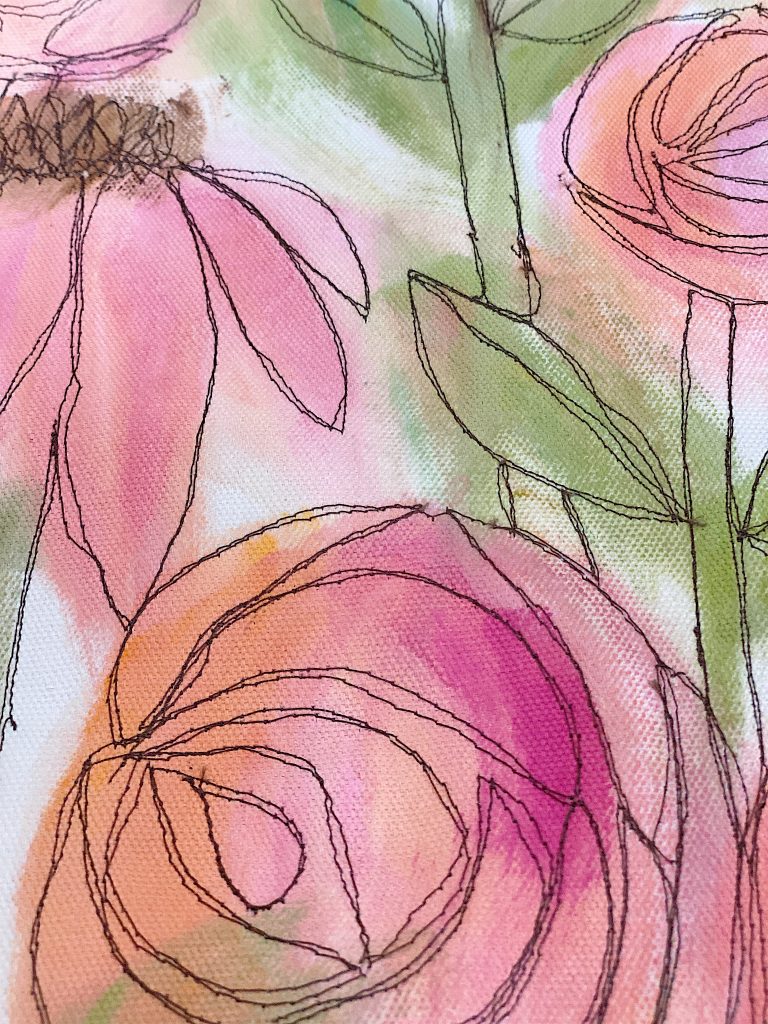
I actually painted this DIY pillow first and then added the detail with free motion embroidery.
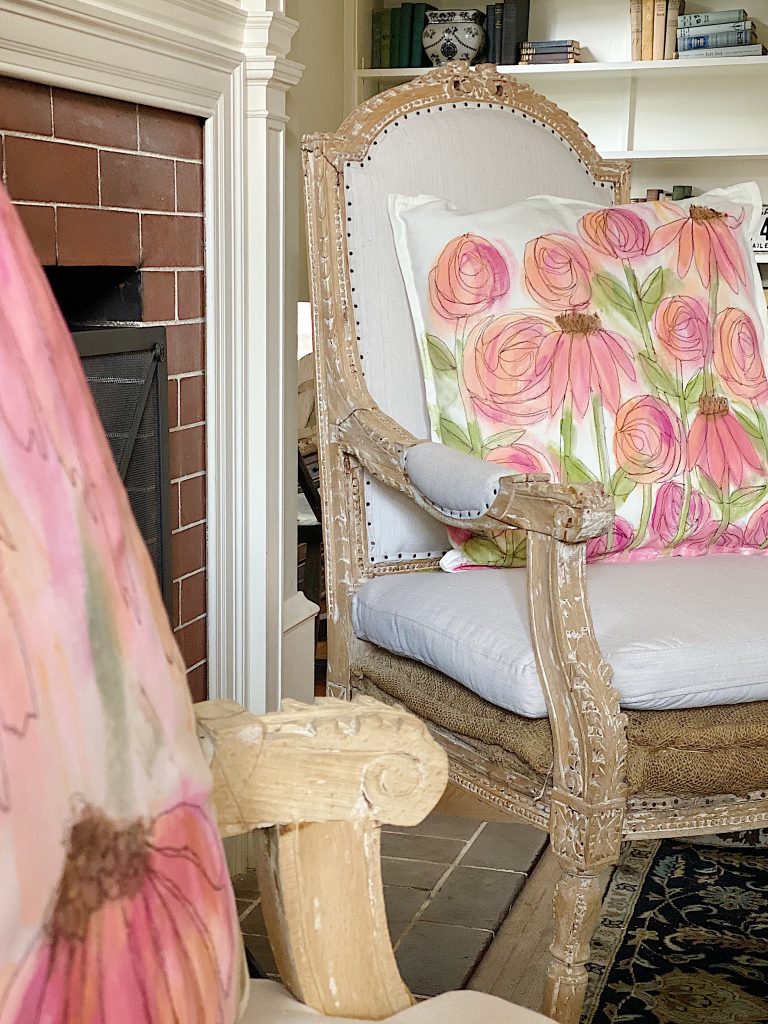
Look at all of the Free-Motion Embroidery DIY Pillows I Have Made
Just tap on any link to see the DIY for the pillow.
If you are enjoying my blog, you can sign up to receive my blog updates here.
.What is free motion embroidery?
Free motion machine embroidery is a type of sewing that you do on a regular sewing machine but you can move the material in any direction while sewing it on your machine. Normally when you sew, the machine automatically moves the fabric forward. When you sew free motion embroidery, you get to move the fabric so you determine exactly where you want to sew. You can move sideways, forward, backward to create any shape you want. All you need is a quilting foot (or darning foot) and to lower the feed dogs on your sewing machine.
The free-motion quilting foot, sometimes called a darning foot, is designed so that the sewing machine needle passes through a small ring on the foot. Instead of hopping, these feet float over the fabric without providing pressure. The Foot releases the fabric when the needle is in the up position, allowing you to move the fabric freely.
This is a free-motion foot for your machine. This foot may vary based on tour type of machine but I linked a “universal” one. This means … you don’t need a special sewing machine to do this!
Why do you need to lower the “feed dogs” on your machine when stitching free-motion embroidery? Feed dogs are the little teeth on your sewing machine that feed your fabric evenly through the sewing machine. These are extremely important because they help us produce perfectly spaced, even stitches whenever we sew garments, piece quilts, or applique shapes on our machine. If you lower the feed dogs for free-motion embroidery, you can move the fabric freely.
For this DIY pillow, I lowered the feed dogs using a lever on my machine and it was easy. If you can’t find the feed dog lever on your machine you can leave the feed dogs up and use a Supreme Slider instead.
What You Need to Make a Free Motion Embroidery Pillow
Pillow cover (I used the Gurli 20″ cover from Ikea)
Acrylic paint and brush
Dark Embroidery thread (I used brown)
Parchment paper or cardboard to fit inside the pillow while painting.
Free motion quilting foot for your machine (varies by sewing machine brand)
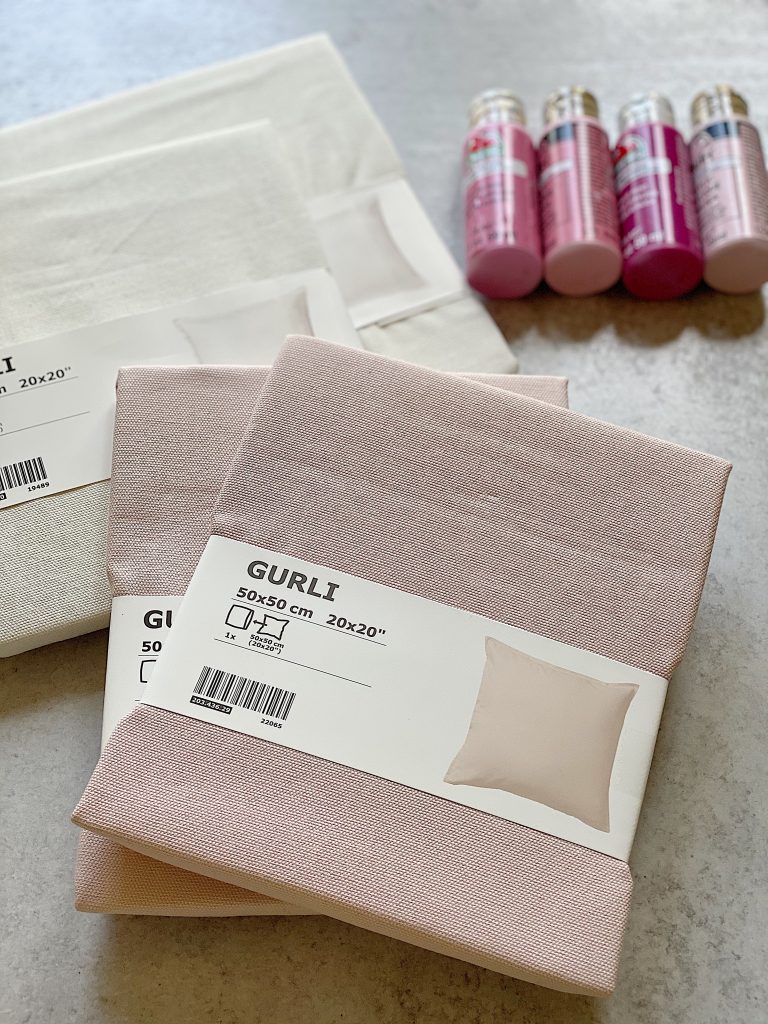
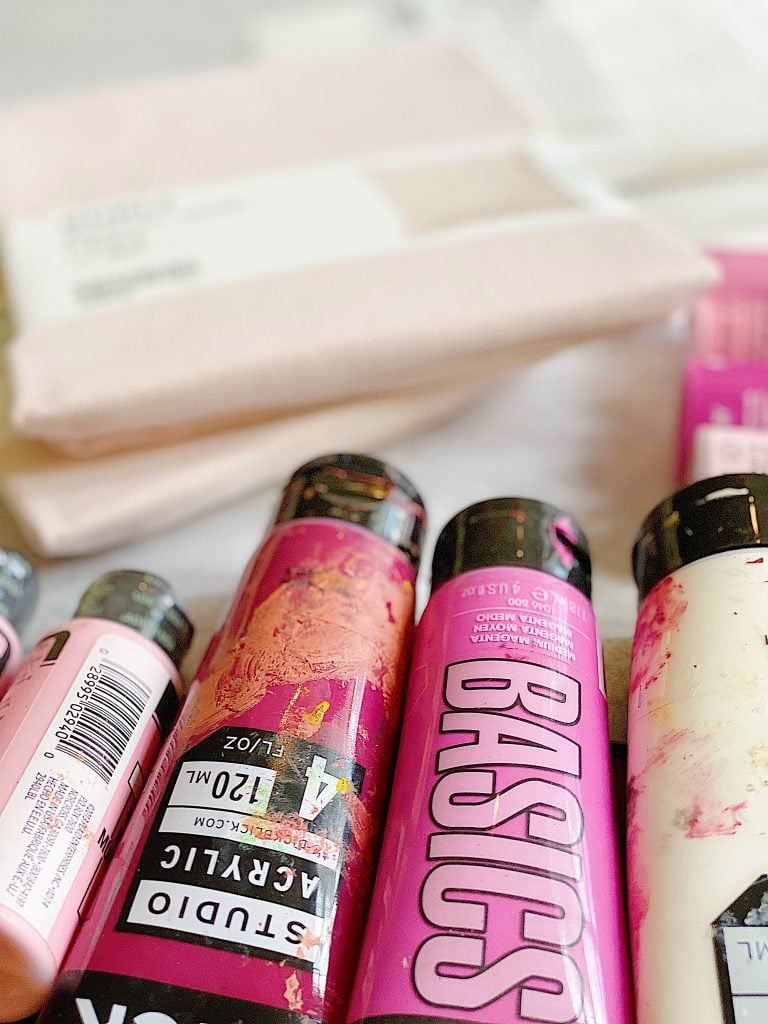
How to Make a Free Motion Embroidery Stitch Pillow
To prevent the paint from leaking through place a piece of parchment paper or cardboard inside the pillow.
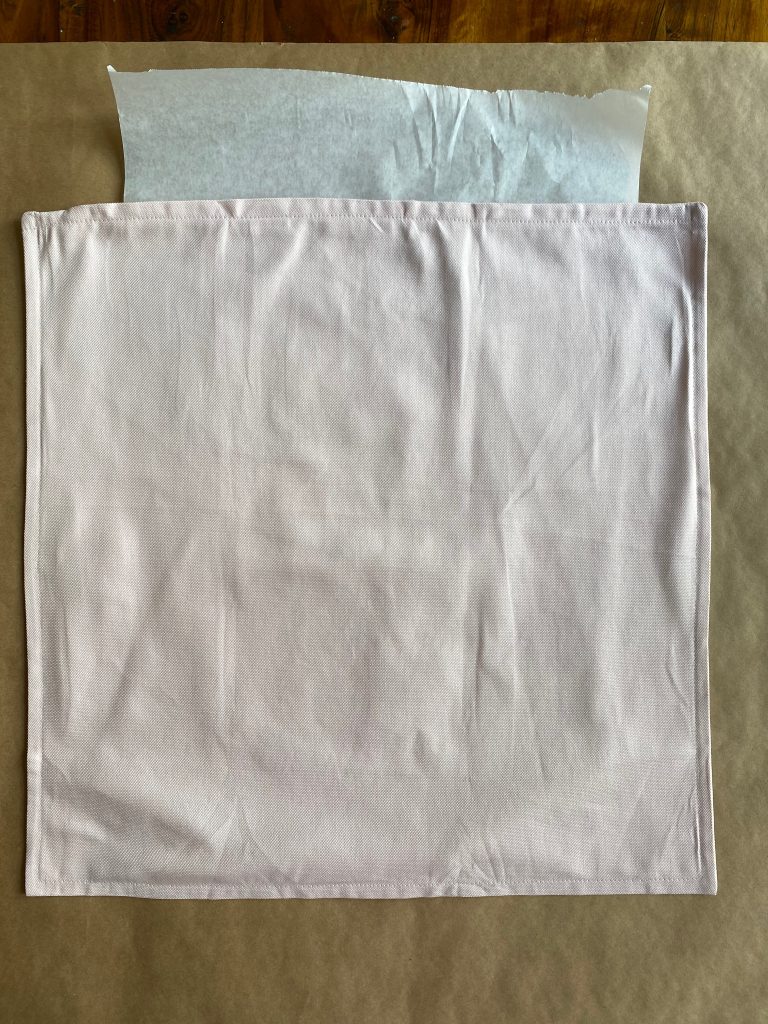
Select your design. You can use inspiration from craft paper (as seen below) or anywhere!
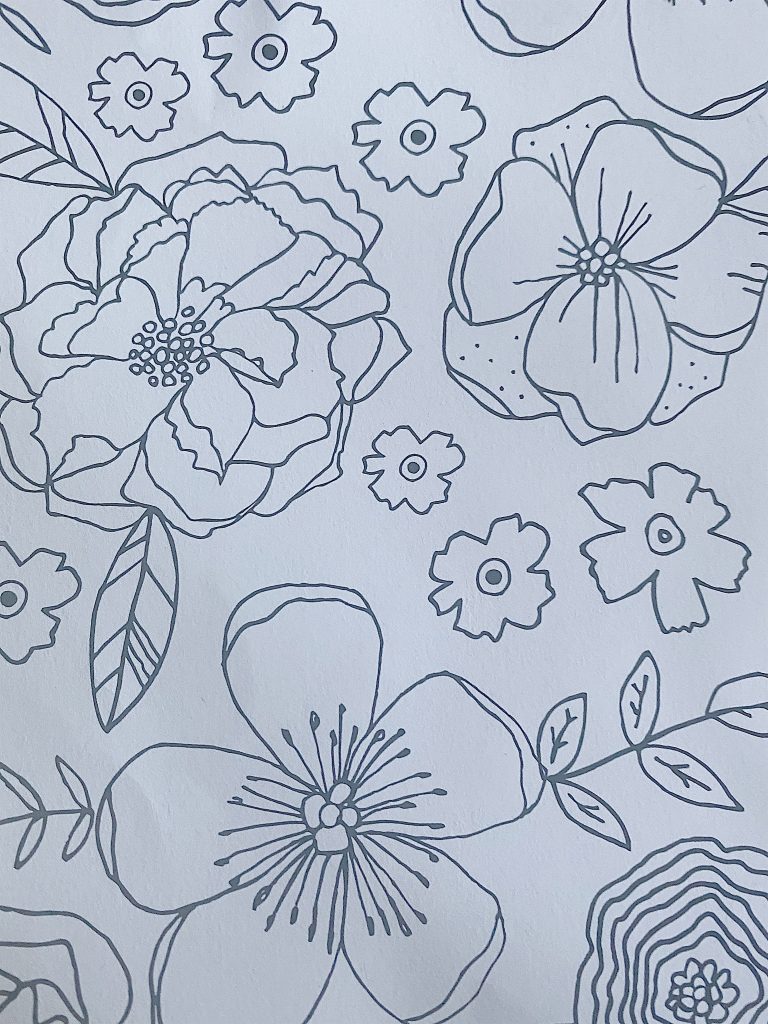
Choose your color palette and place paints on paper plates. Feel free to mix the colors as this will result in a more cohesive color palette.
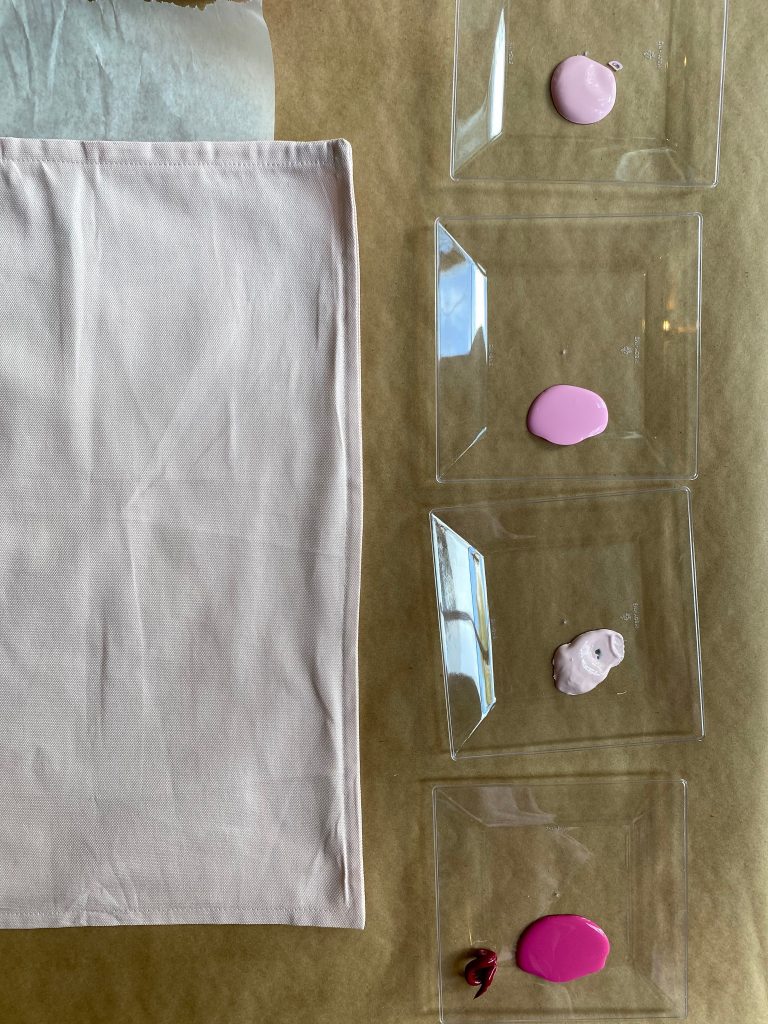
Paint shapes on the pillow, not flowers. I like just painting shapes and not things.
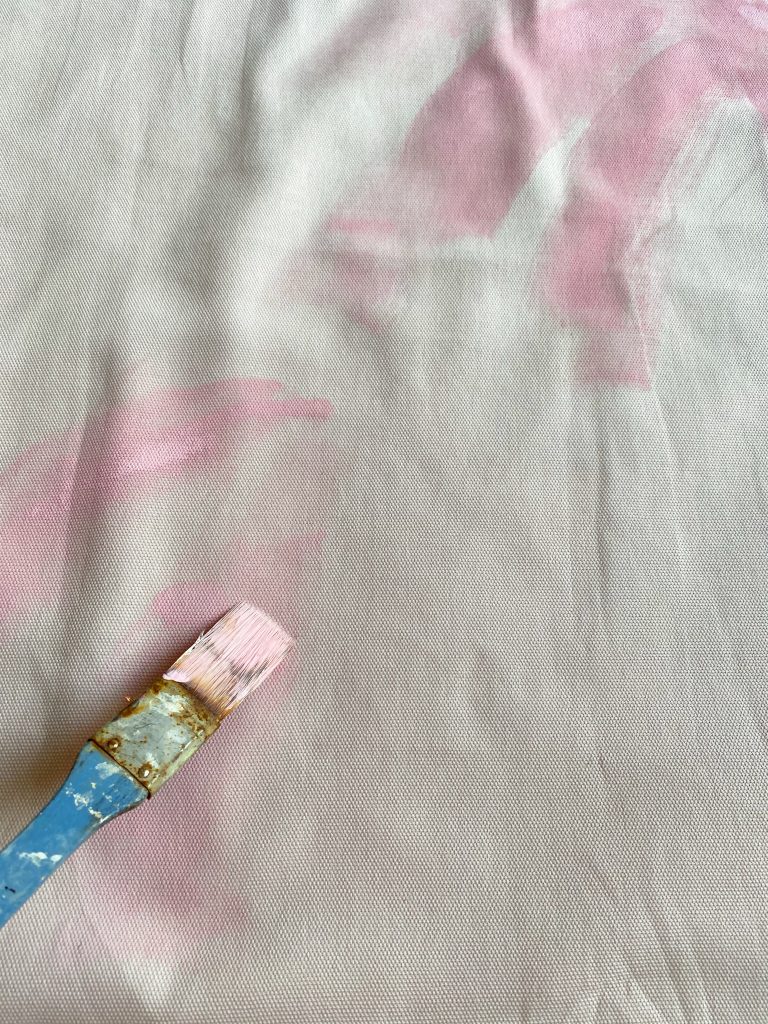
At this point, all you are trying to do is add color shapes, not specific flowers (the embroidery is for that).
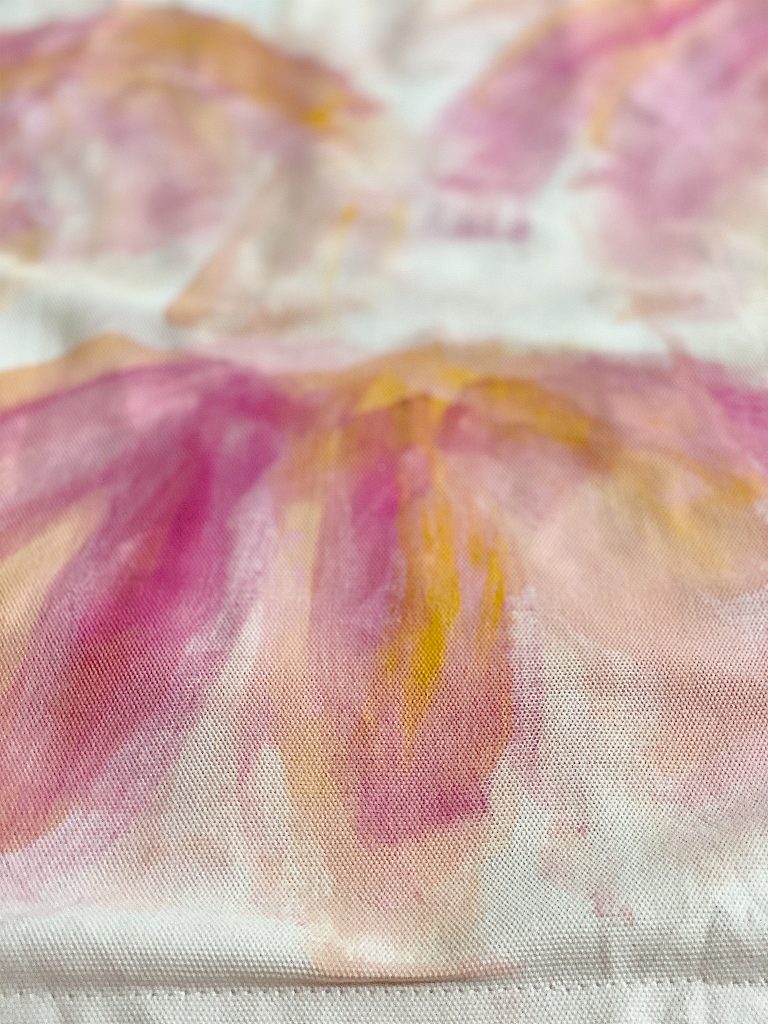
Also, vary the colors and don’t just use one color. I added some orange to depict a warmer color of sunlight.

Let the pillow dry overnight. Or if you are impatient like me, dry it with your hairdryer.
How to Sew Free Motion Embroidery
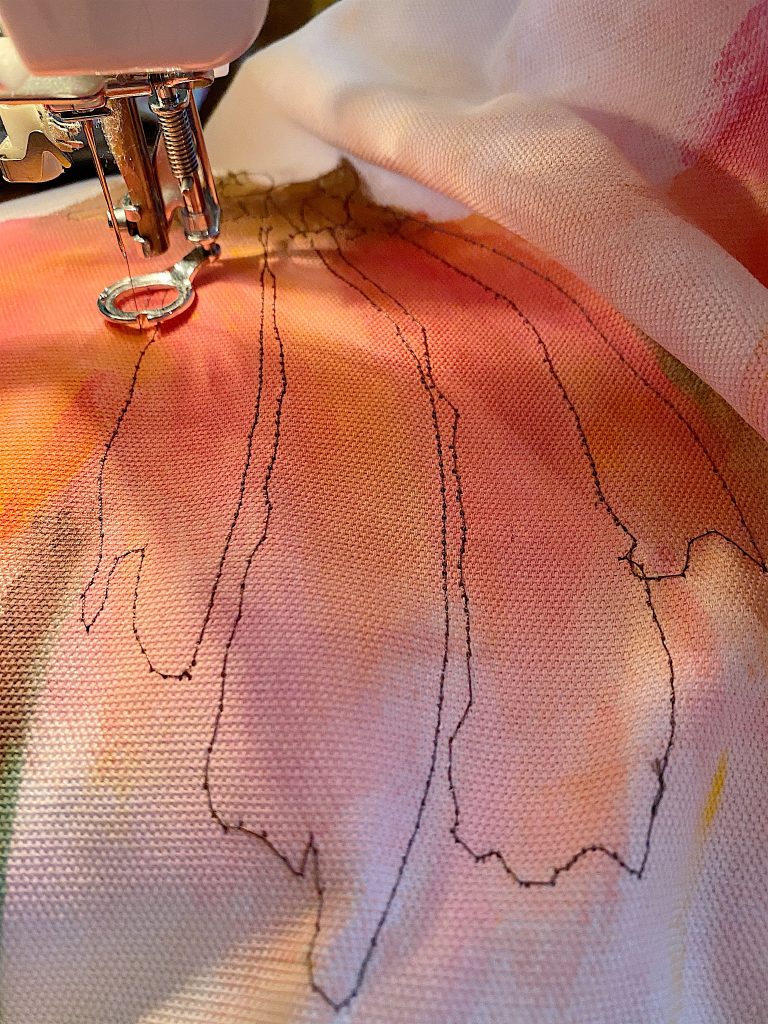
The best thing about free embroidery is that it doesn’t need to be perfect. I love how it looks when the two layers of stitches don’t match. And I love being able to push the fabric wherever I want it to go.
I loved making these roses. I had no pattern and all I did was sew a lot of crescent shapes. It was “free-handed” and not perfect. That is why I like it so much. As you can see, I roughly stitch over the round painted shape, not worrying if the shape was covered or if I stitched out of the lines.
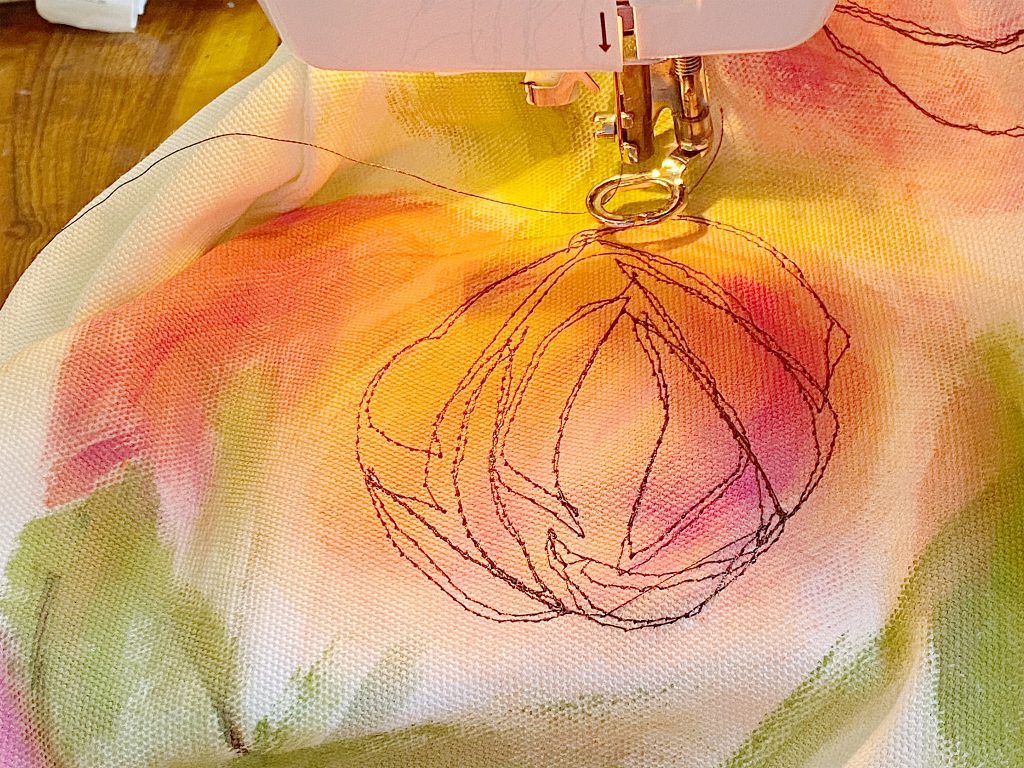
As you can see here, the leaves I stitched barely conformed with the green painted “stems and leaves”. But I love that too!
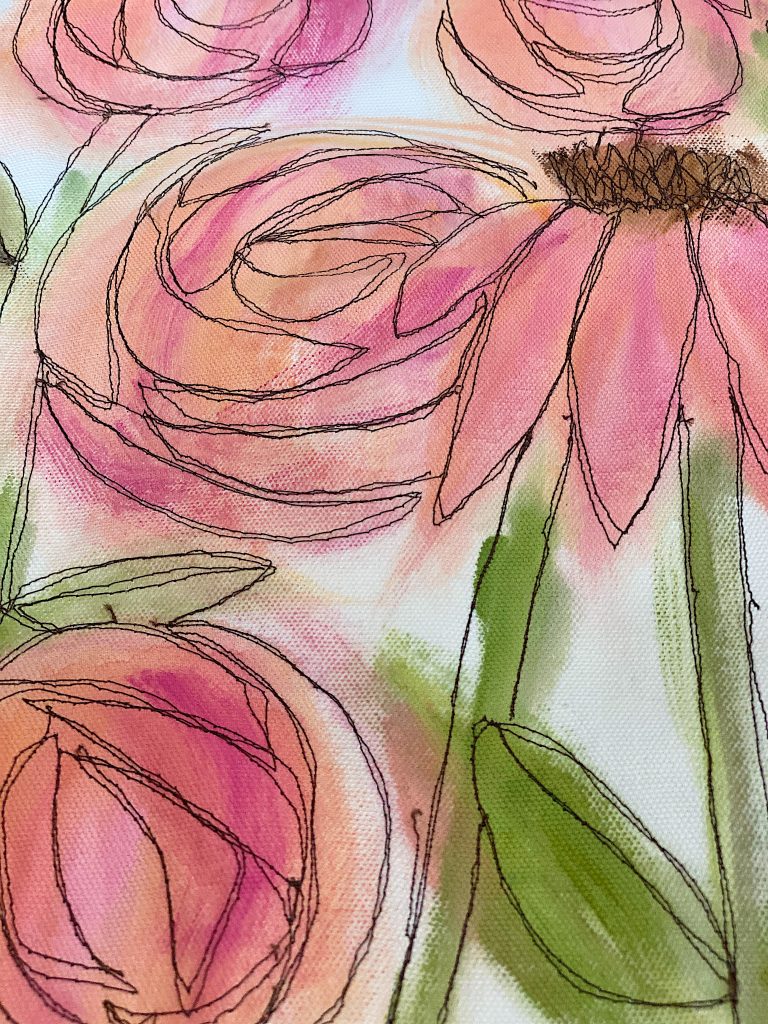
This was so much fun.
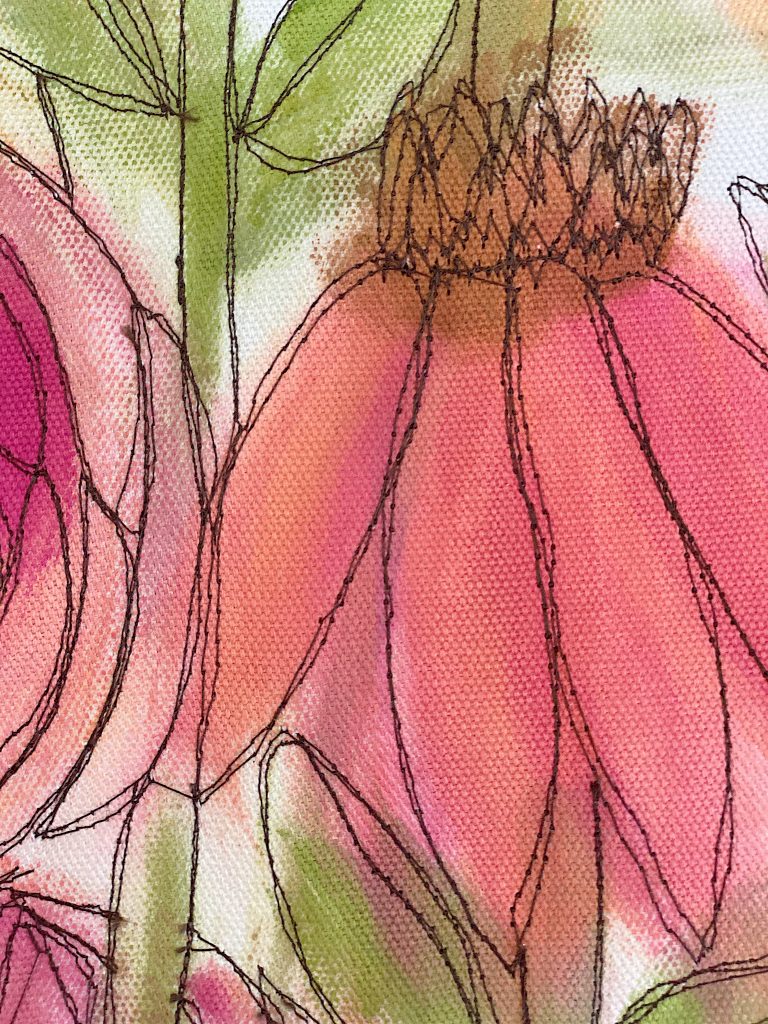
Watch the video to see how to make this pillow.
I love how the finished pillow looks in our living room.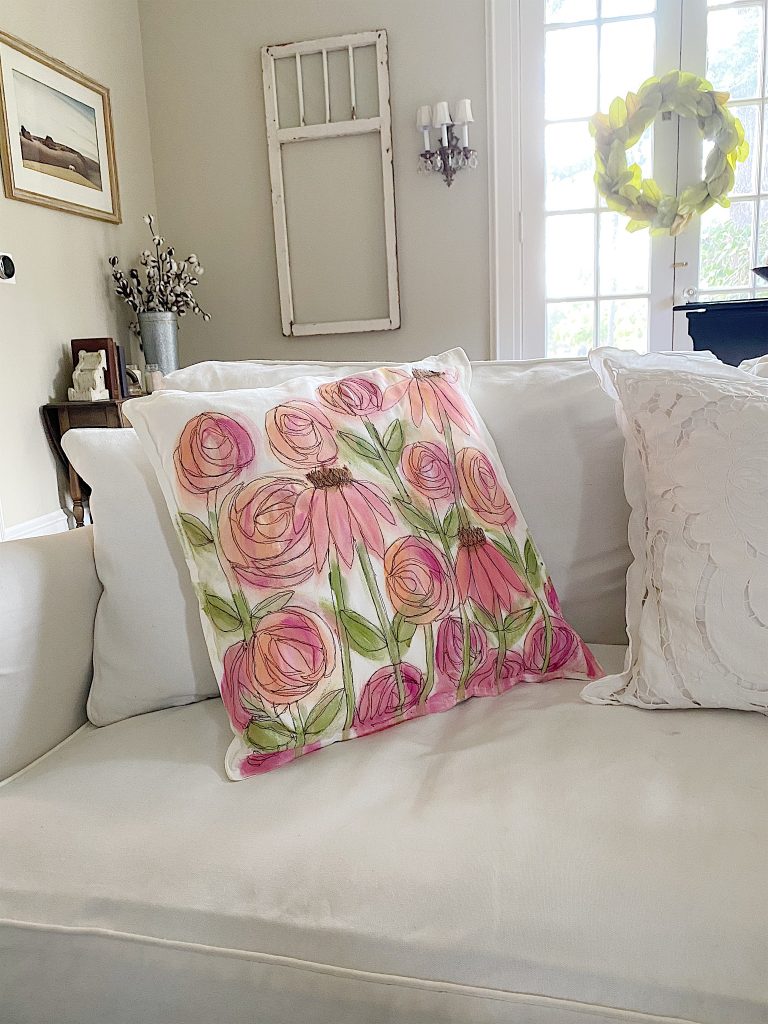
This is the other one I made.
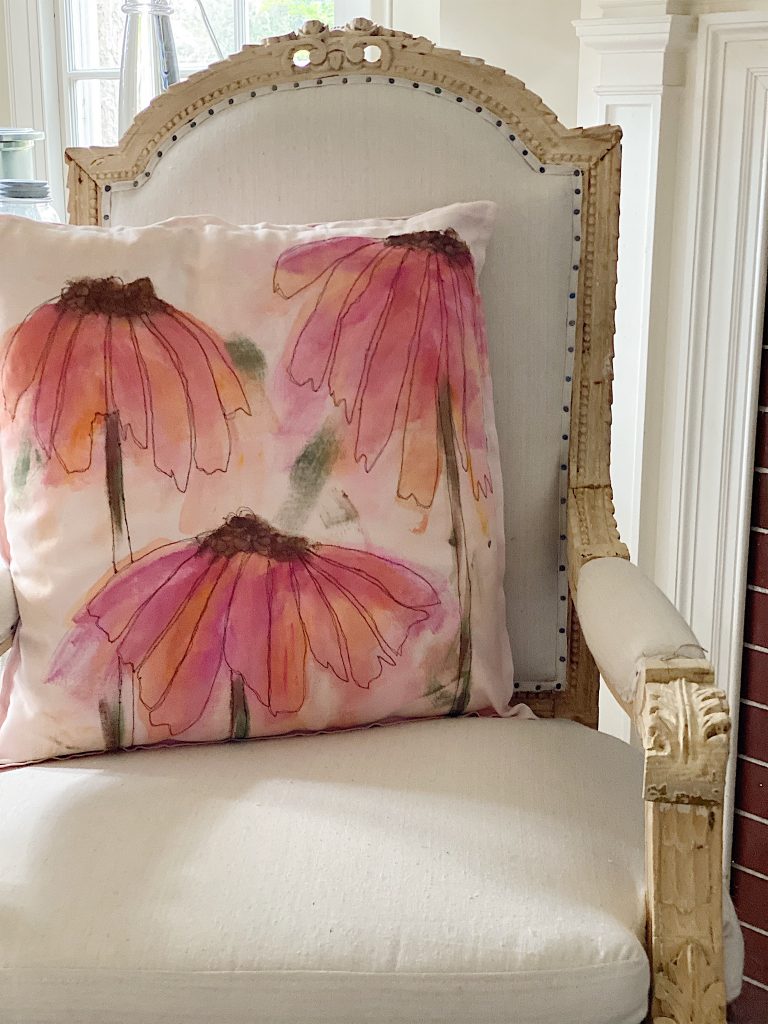
I really love these colors. I hope I have inspired you to give this (or any of the other seven free-stitch embroidery pillows I have made) a try.
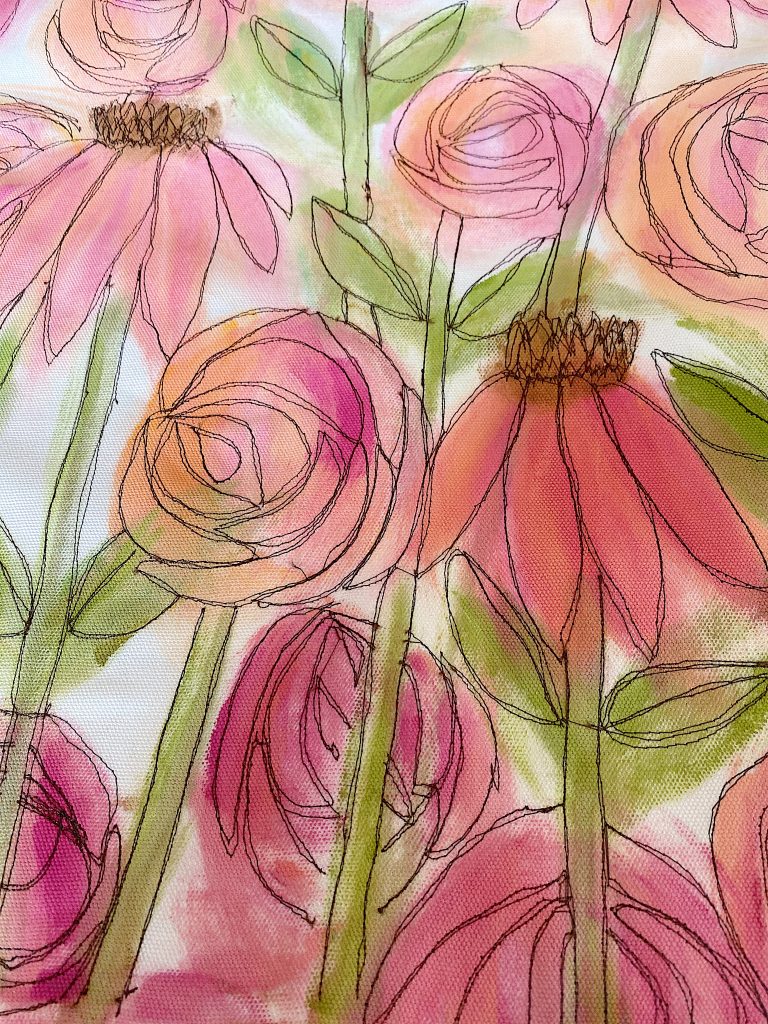
Links to the Items Shown in This Flower Pillow Post
Similar Posts
Pin the image below to your Craft or sewing boards on Pinterest (just click the Pin button in the top left corner). You can also follow along with me on Pinterest!
For more real-time updates, follow me on Instagram @My100YearOldHome
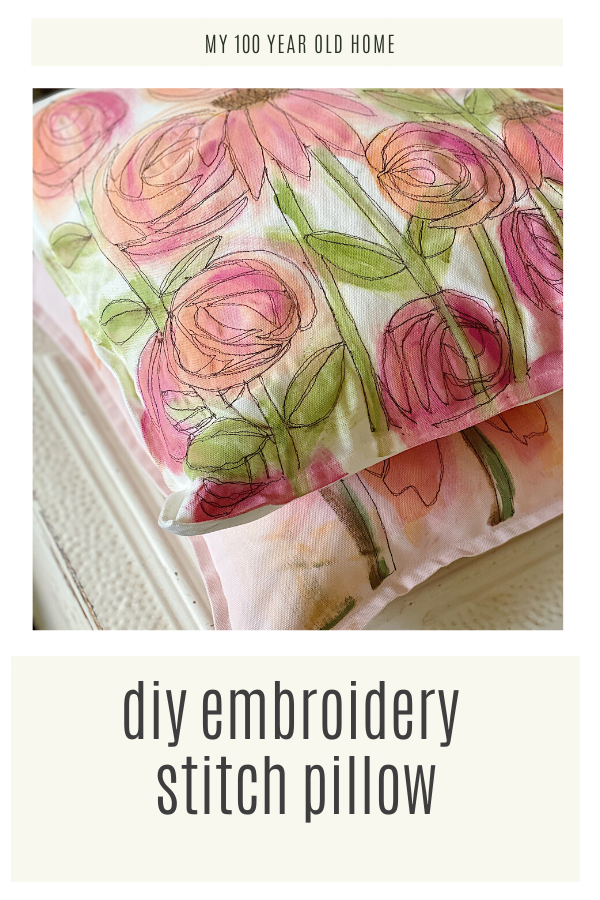

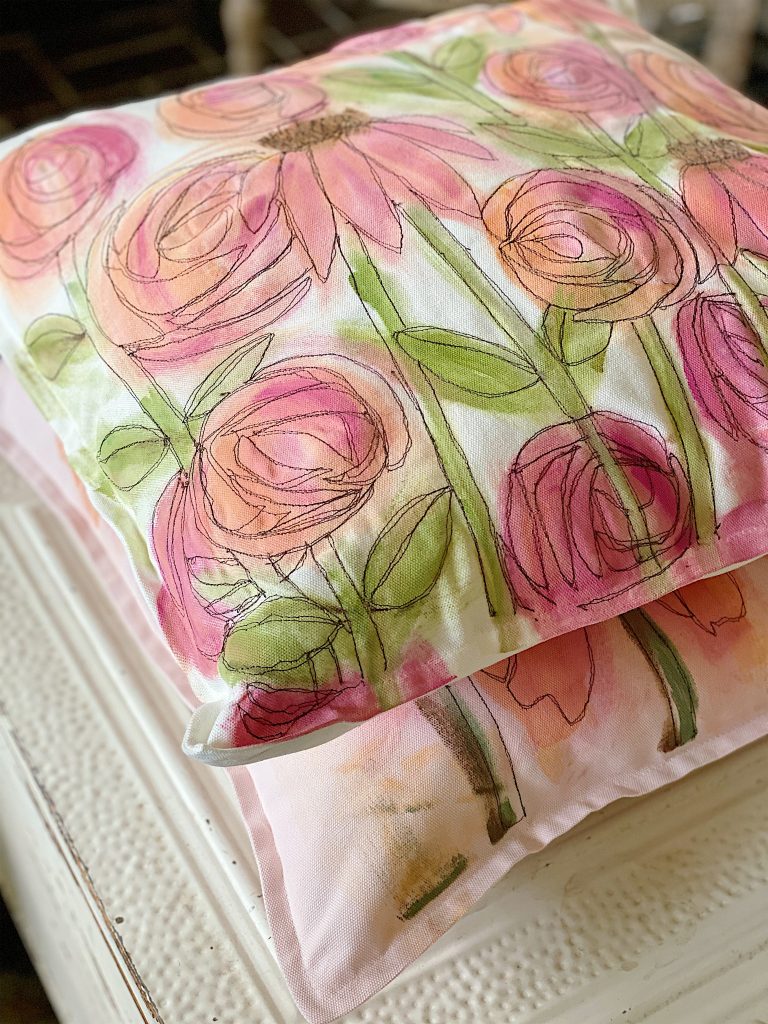
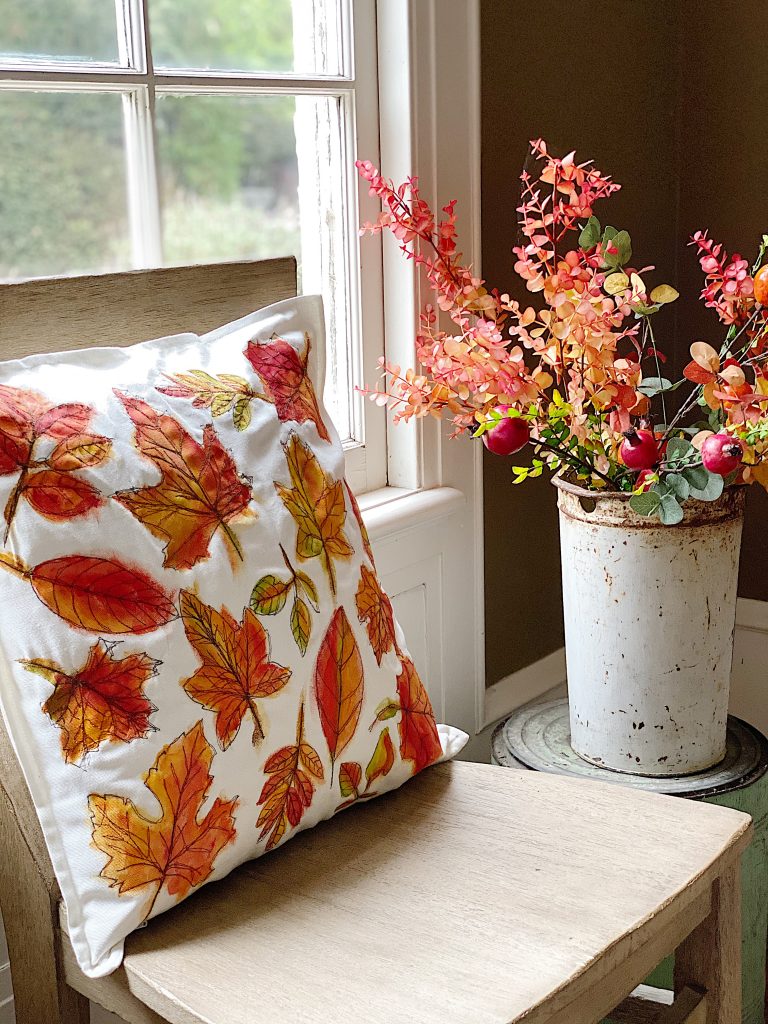
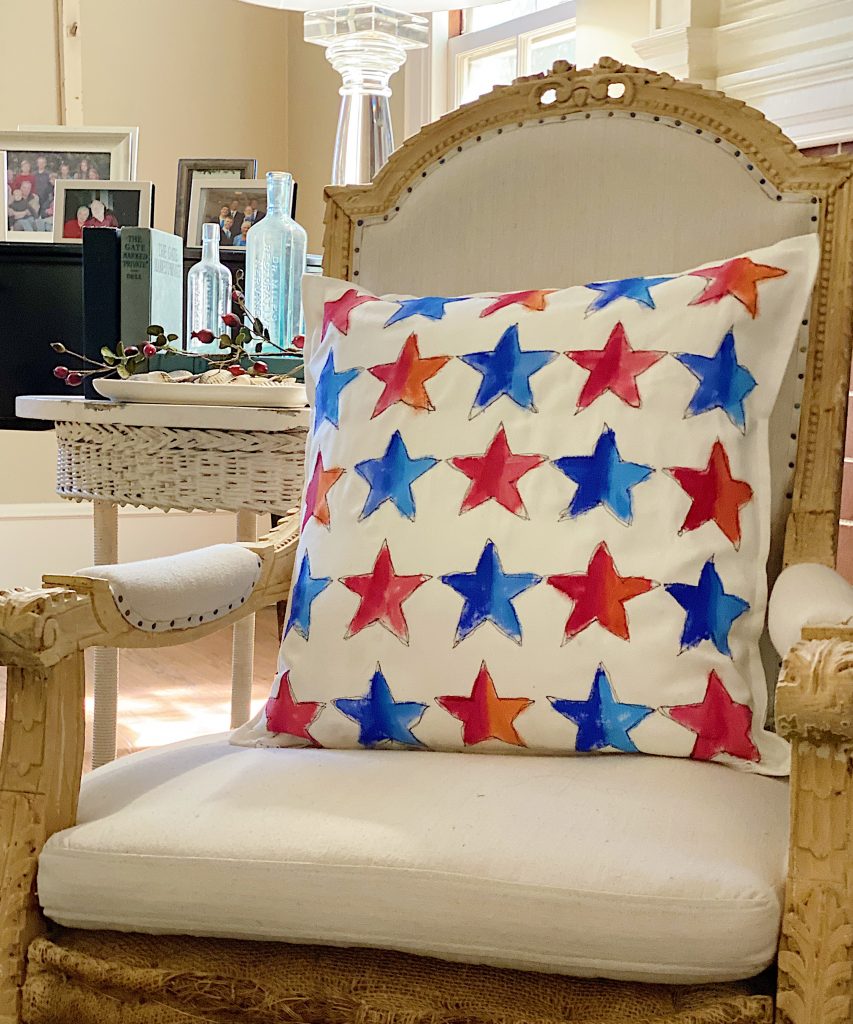
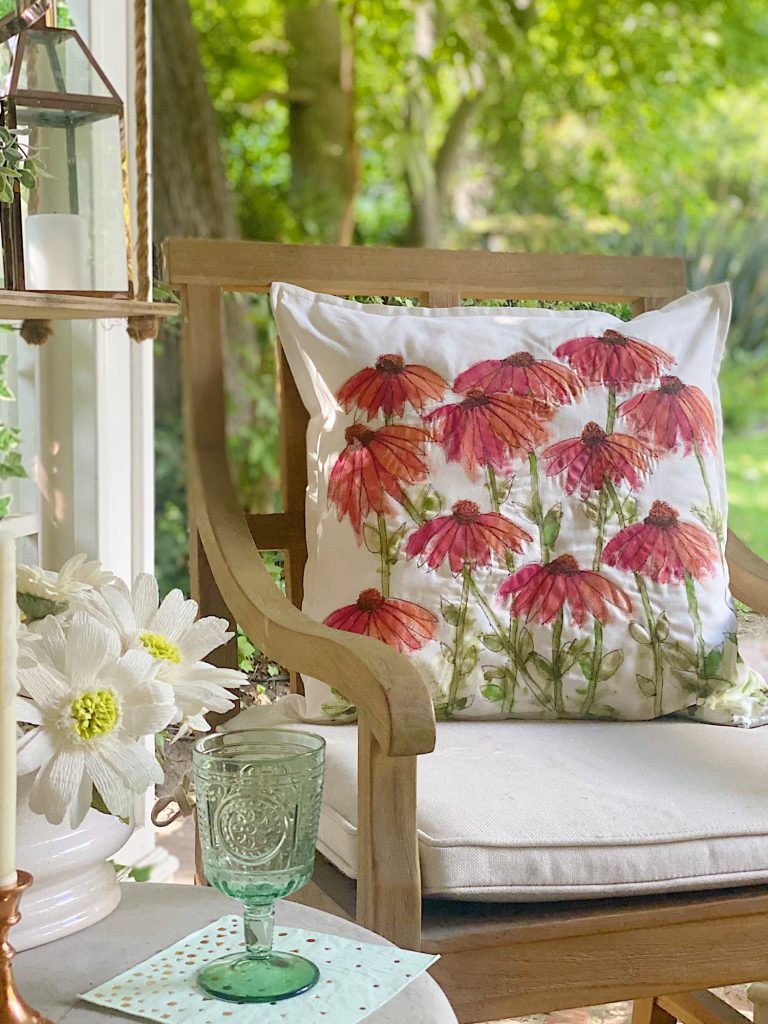
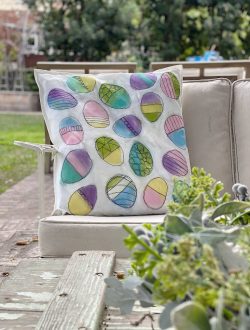
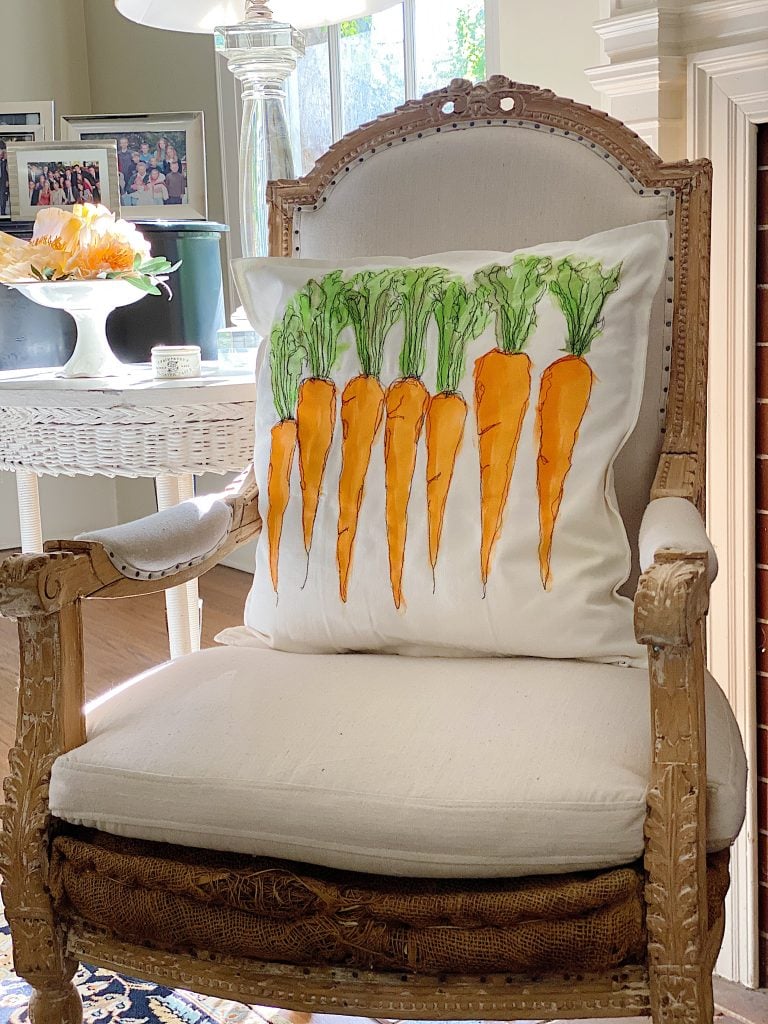
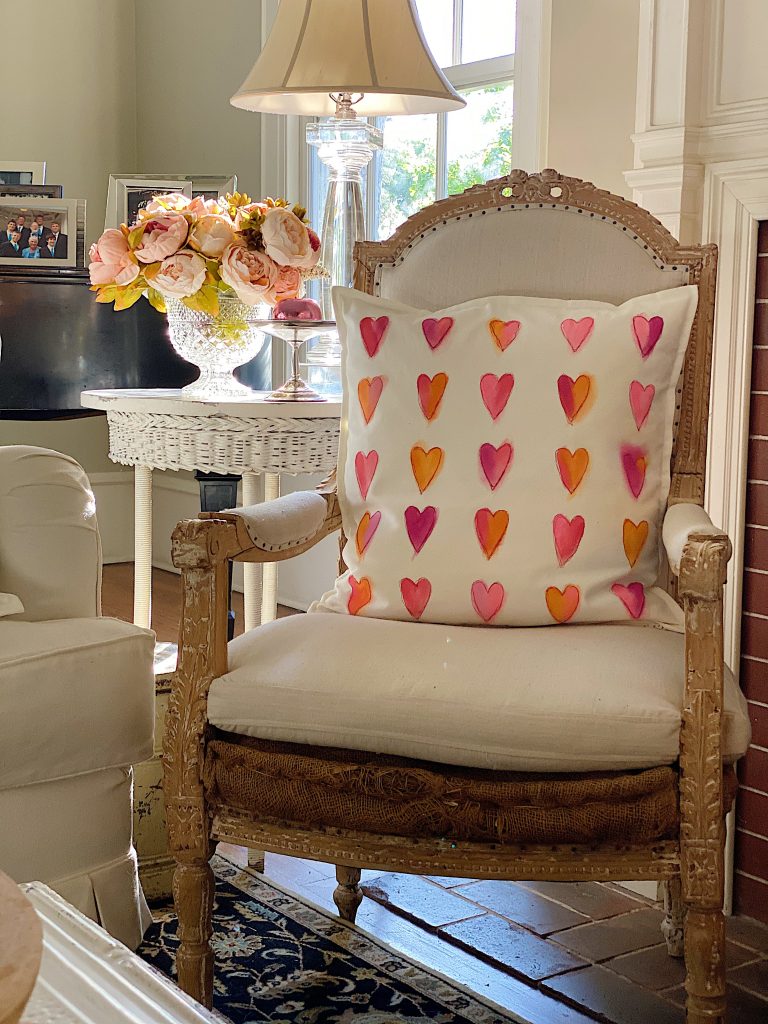
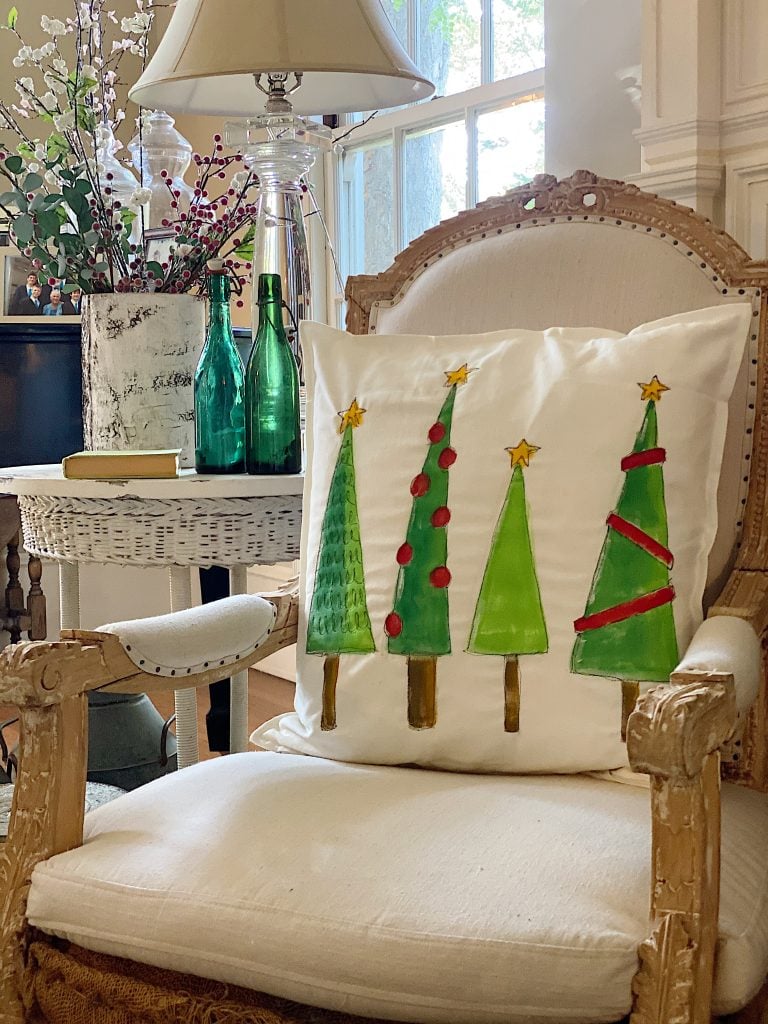
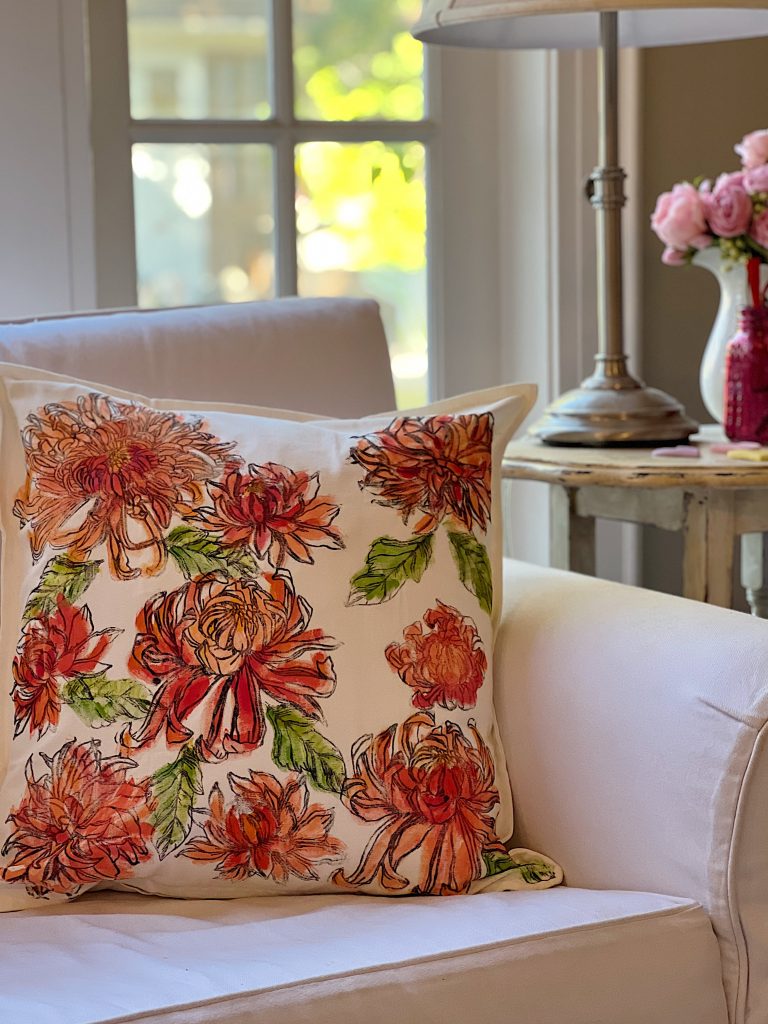

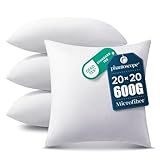



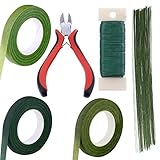











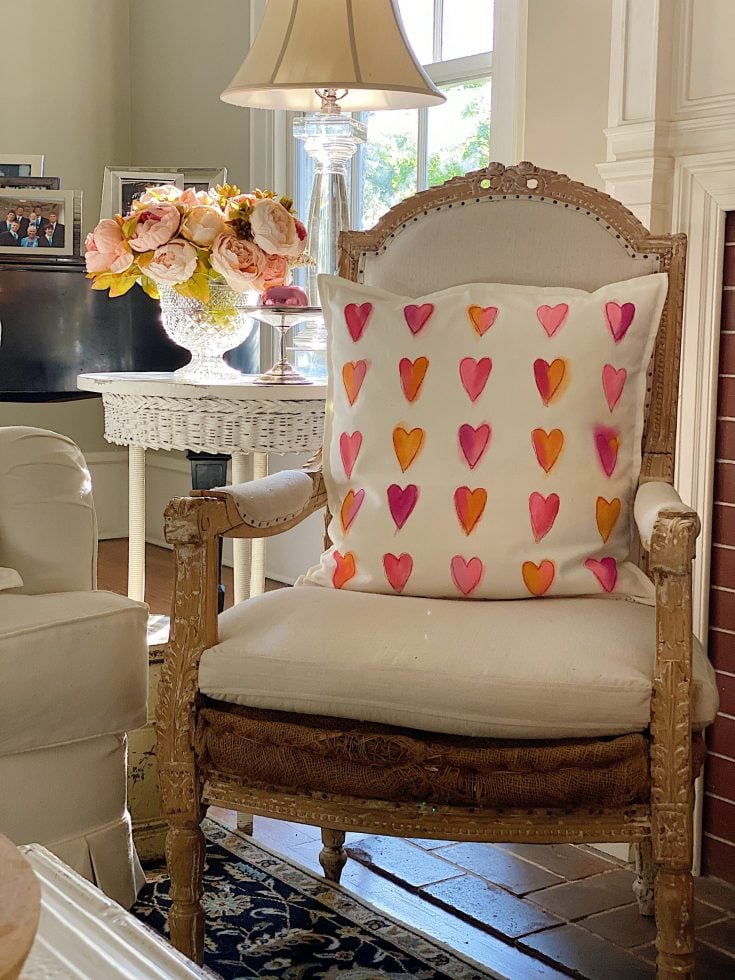
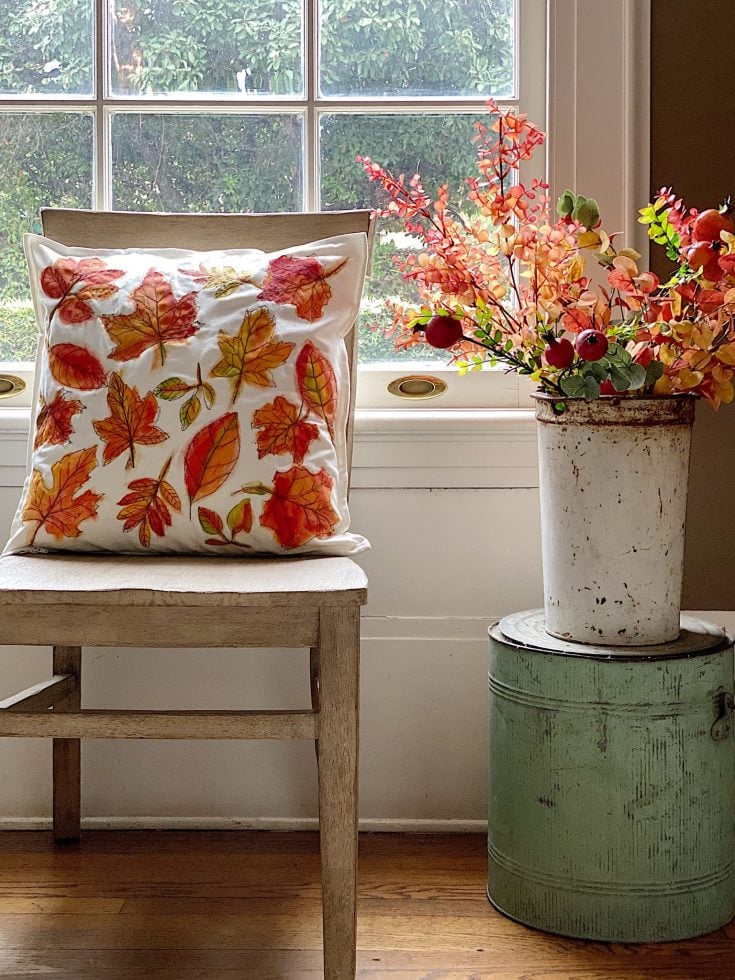
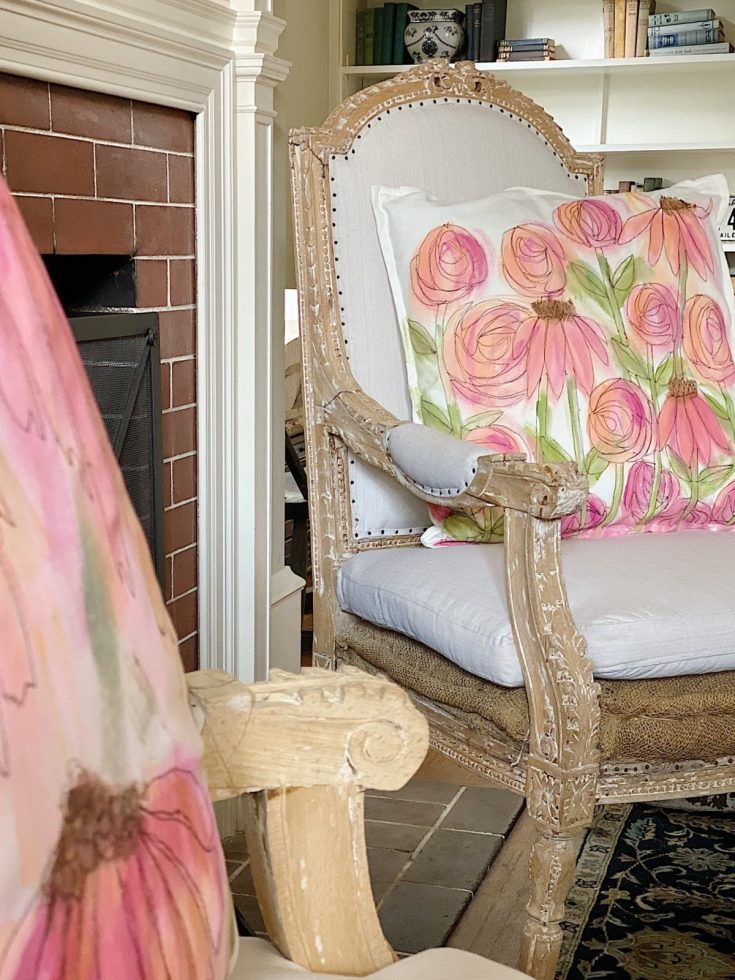
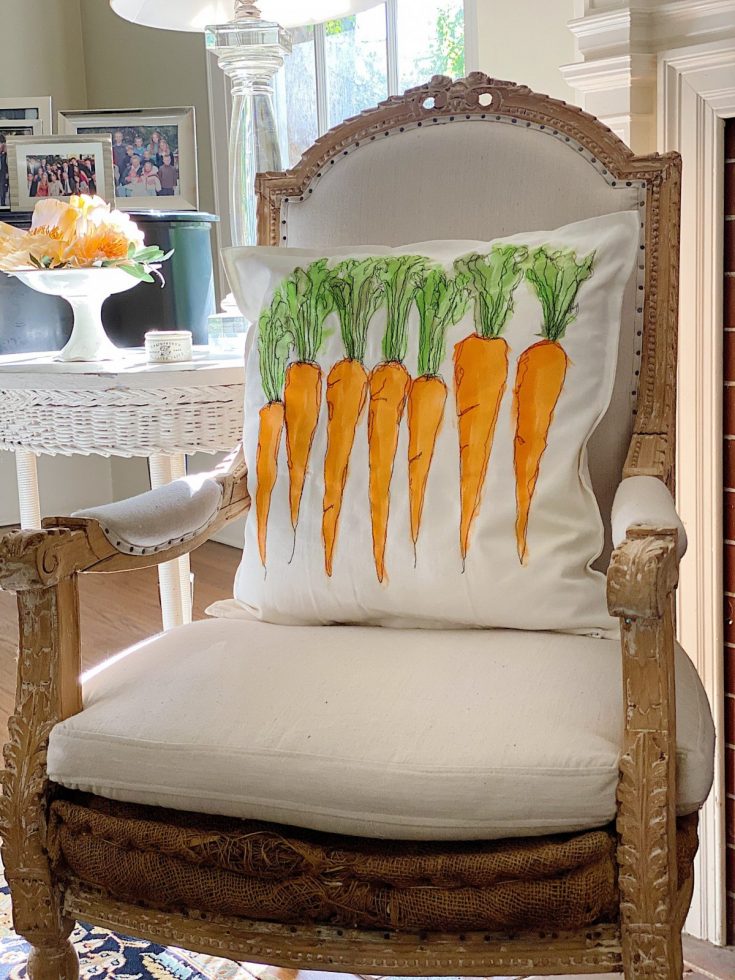
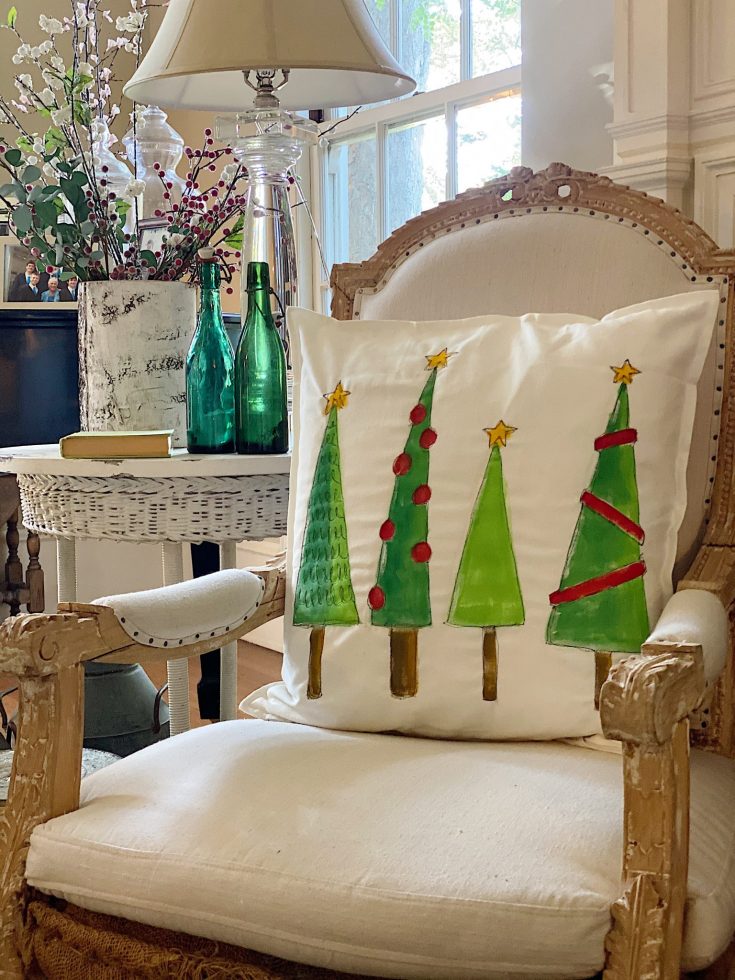
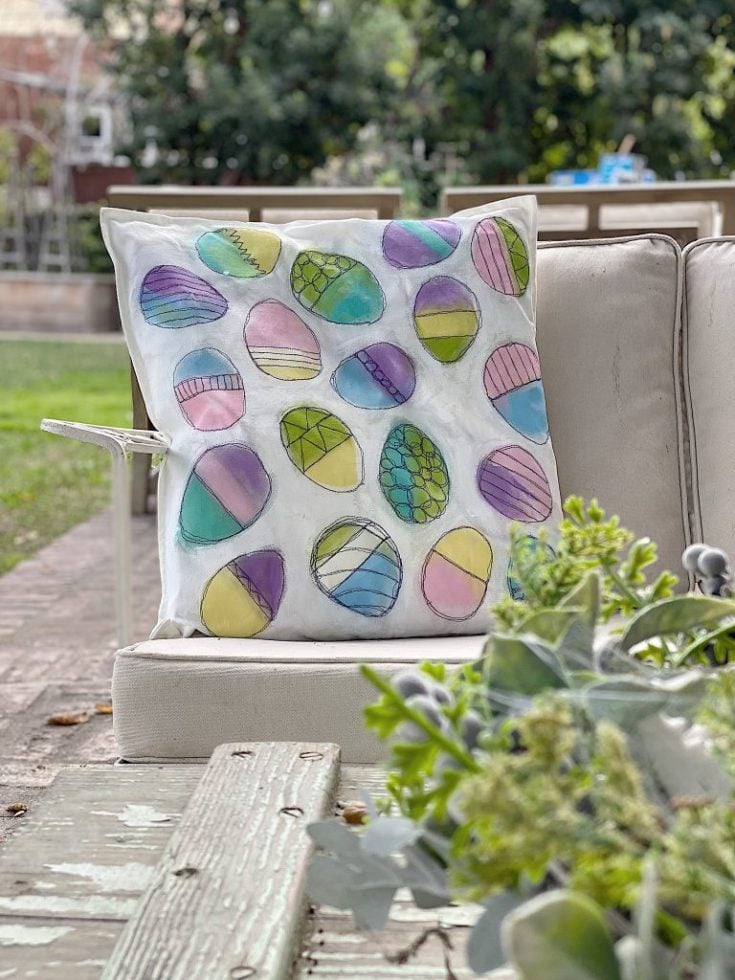
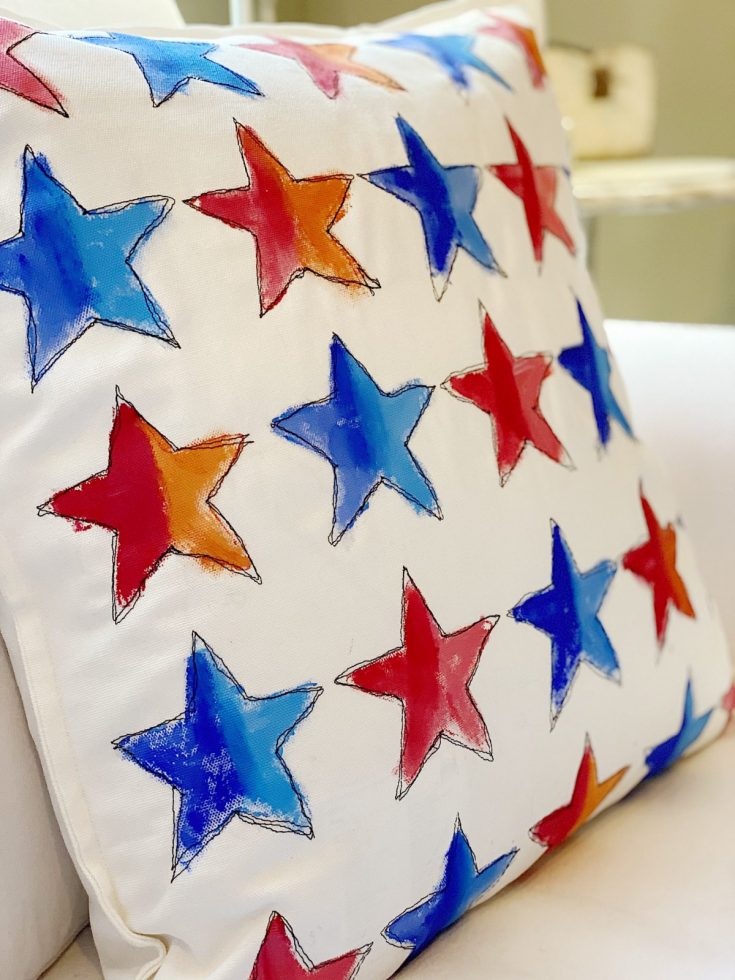
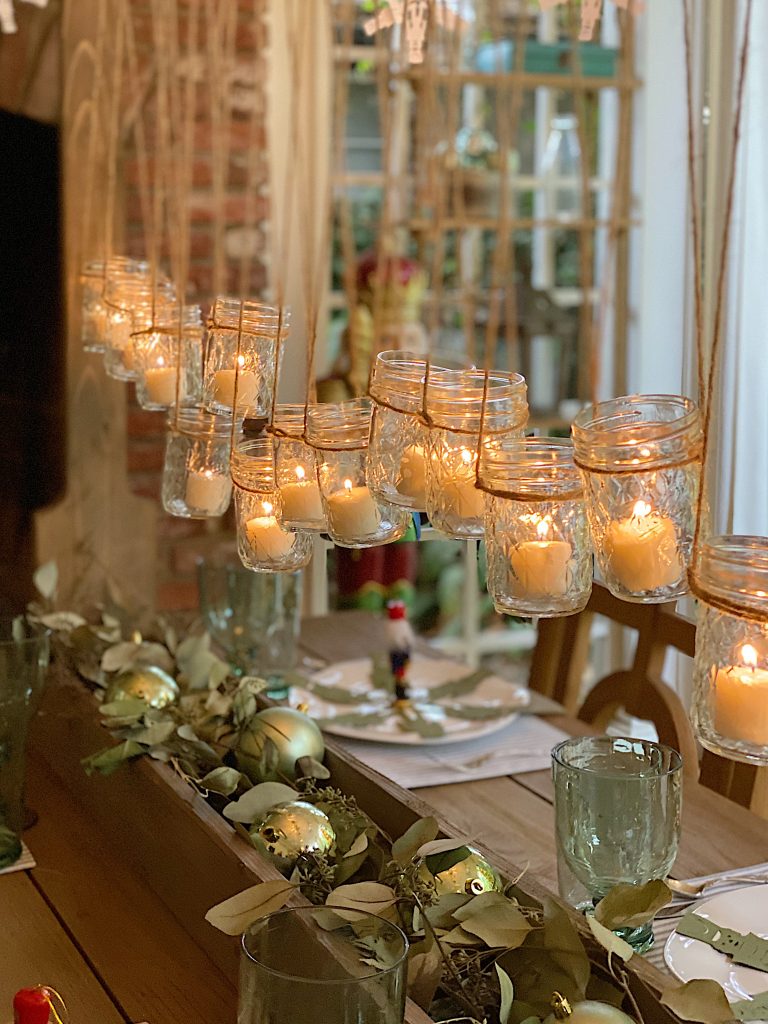
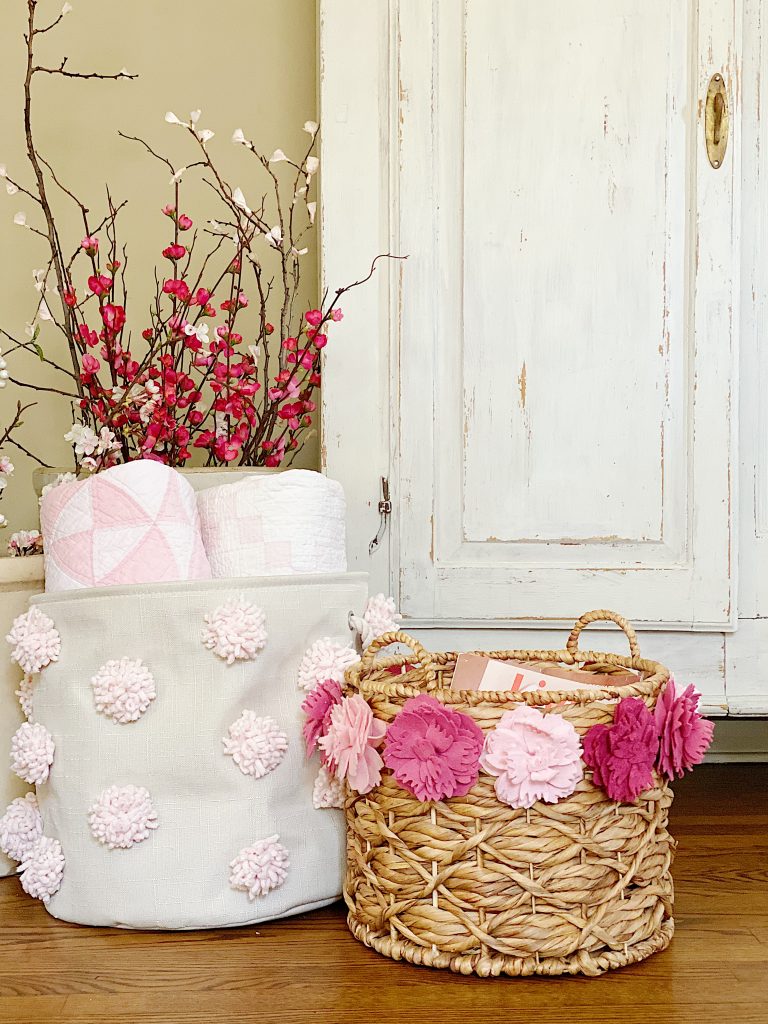
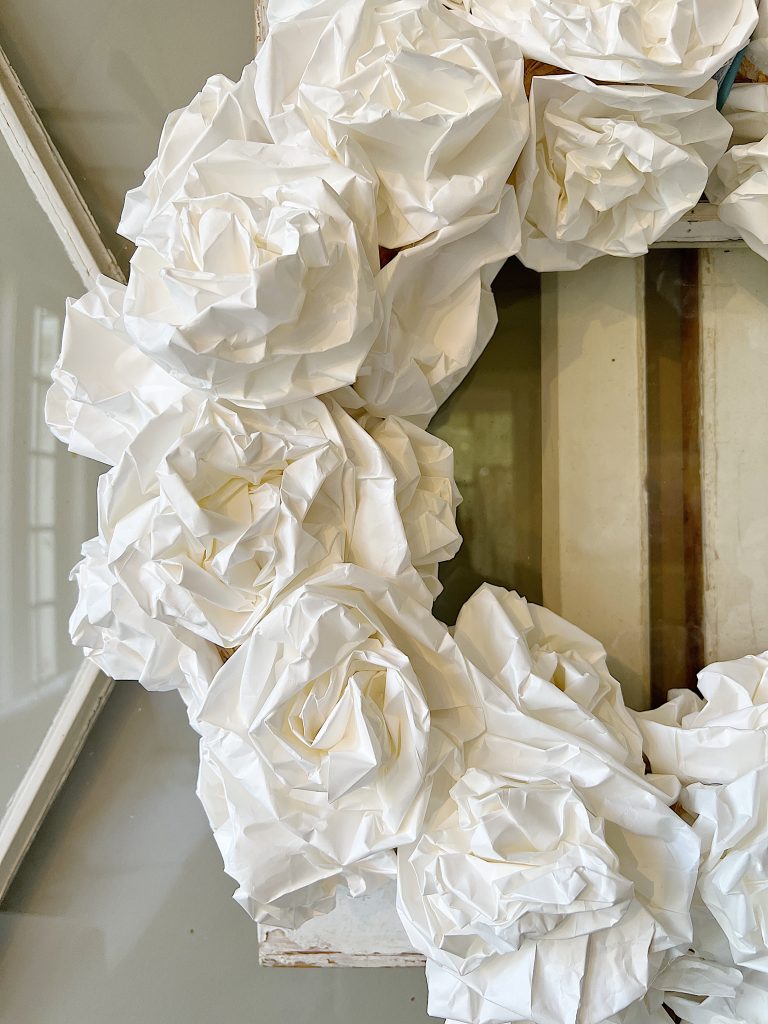
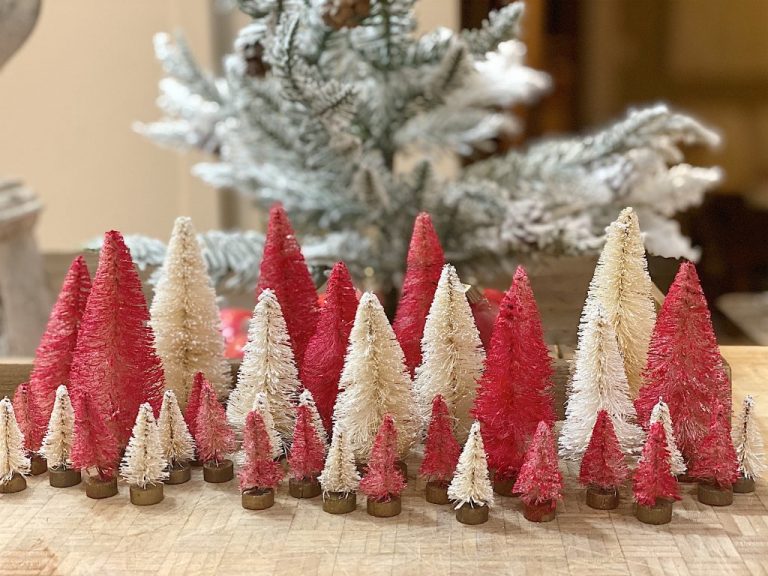
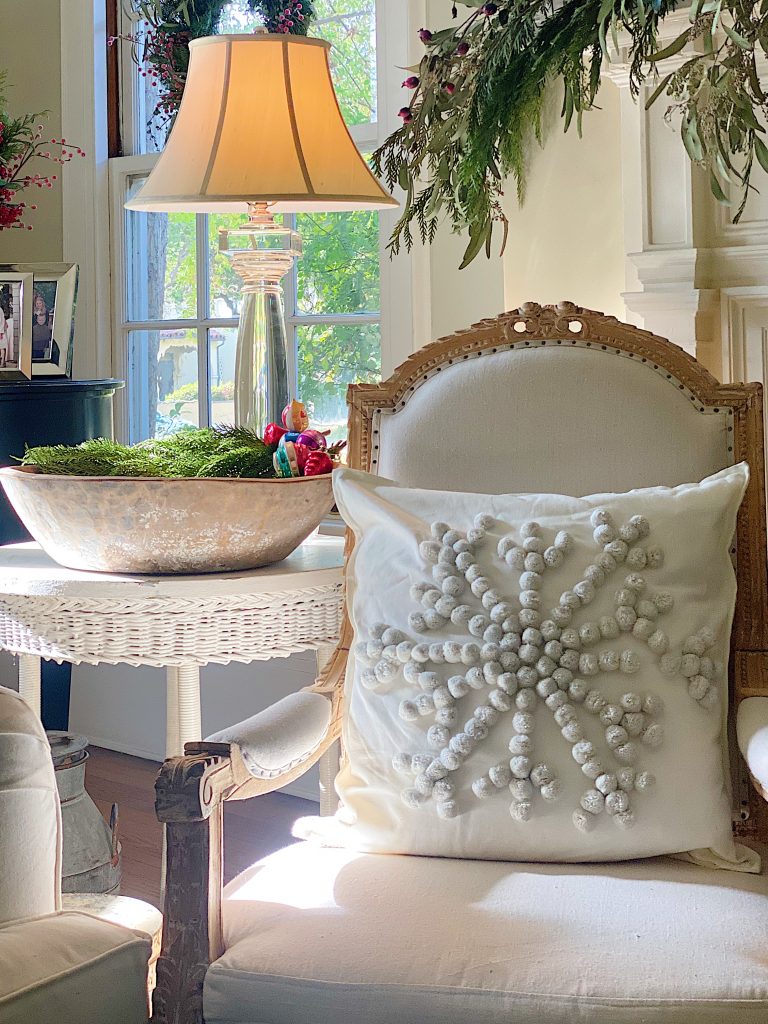






When I was reading it, I was having a lot of fun with it. Even I’ve enjoyed reading a few more posts. I appreciate your time and effort in putting this article together. I noticed you can spend a lot of time reading comments and replying to comments. You care a lot more. I have seen all your posts so far. It was as successful as the previous posts.
Thank you for following along, Toha! I am so glad you are enjoying.
I love these pillows. I may try this soon. Have to get up the courage. I love your crafting ideas so much! You a e great taste!!
Where would I find the video you refer to that shows how to sew the free motion pillows? Thank you so much for all of your wonderful ideas! I’m wanting to try this on an apron bib front so we’ll see how it goes! I love everything you do!!!!! You’re one talented lady!
I adore the free motion embroidery projects you do!!! I am working on my free motion embroidery techniques. The tension in my machine is off … flat string on the bottom and loops from the top. I have tried resetting the tension and changing threads and nettles.
Is there a particular tension you set your sewing machine to for free motion ? I am embroidering a flour sack towel. Could paint be clogging or interfering with nettle of tension? I am just baffled.
I have my supplies ready to make the pillow covers. Did you pre- wash the fabric before painting?
Beautiful, how do you not sew thru both layers of the pillow cover? Thanks so much.